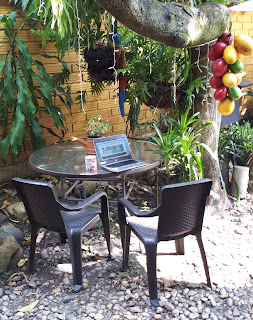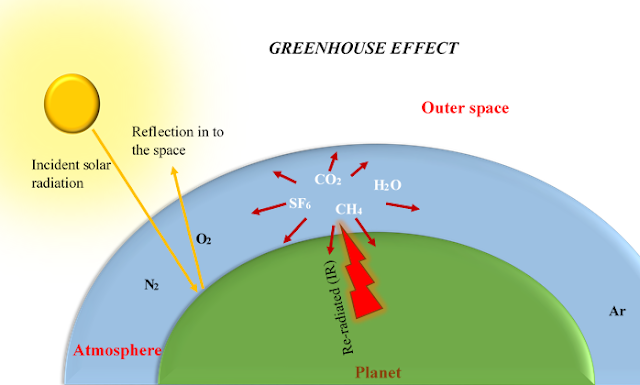First of all, an apology to all readers of the BALD Engineering ALD News Blog. There have been less than usual activities on the blog for the last couple of weeks. Recently I decided to quit my good safe job at Fraunhofer to start working as an ALD consultant and Blogger full time under BALD Engineering AB (
LINK) and first and fore and most for TECHCET LLC CA (
LINK).
In February, I practiced my new life during our 2 week family winter holiday in Colombia and took some beautiful pictures from my different home offices on that fantastic trip.
Home Office at Playa Blanca, Isla Baru, Colombia
More recently, however, the Corona crisis hit us all, and I think everyone has gone through a time to adapt to a different type of life under these circumstances, and my romantic picture of the home office has changed a bit for now.
The first thing that hit me was postponing workshops and conferences, and I think many of you were looking forward to the ALD events in 2020. Here is a status overview of events I am either involved in or planned to join.
AVS ASD 2020 in Stanford, USA - will be moved (
LINK)
EFDS ALD for Industry 2020 in Freiburg Germany - is moved to 2-3 December (
LINK)
Novel High-k Workshop 2020 in Dresden, Germany - cancelled (
LINK)
The Critical Materials Conference CMC2020 in Hillsboro, USA - is moved to (
LINK)
AVS ALD/ALE 2020 in Ghent Belgium - still scheduled to take place pending the situation (
LINK)
Please let me know which 2020 events in addition to these that should be tracked here!
ALD - Let´s get it rolling
With this as a background, I decided that I need to get things moving again and that is why I now offer all of you who planned to participate in any of these or other ALD events 2020 to send me research news and /or promotional material fro your research or commercial products that you would like to get out there to the ALD community published here at this blog and shared in social media.
Please send the material to me, and we will format it for the blog format and push it out to the ALD community - it is for free!
Two blogs (Strem and Beneq) are already in the pipeline, and I hope to see more from you - Stay Safe!
Contact: jonas.sundqvist@baldengineering.com
Typical back yard Hostel Home Office. Medellin, Colombia.
Hostel at the Caribbean, Always good coffee in Colombia!



%20(1).png)


















